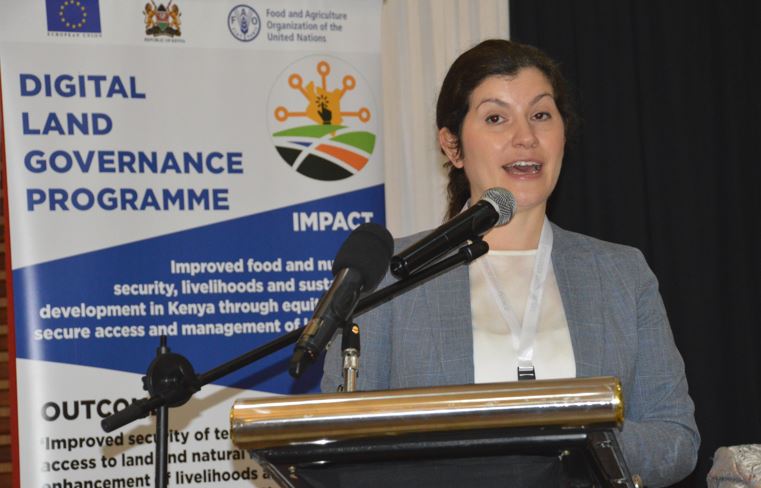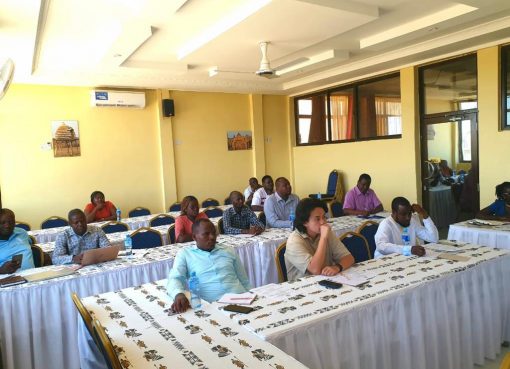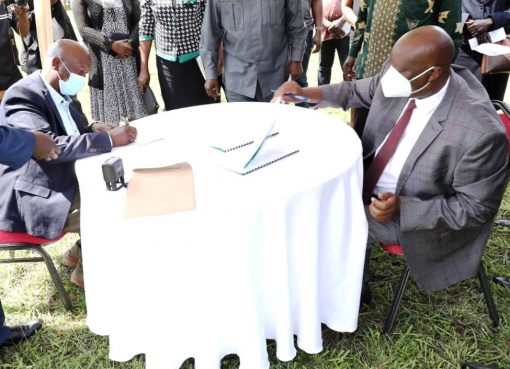The European Union (EU) has reiterated its commitment to support Kenya in land governance projects and programmes that will help mitigate climate change and solve social, economic, political and cultural challenges.
Amb. Henriette Geiger, EU Ambassador to Kenya and Head of Delegation said European Union has been supporting Kenya in land governance issues because of her major historical, social, economic and spiritual significance besides using it for production to boost the economy.
She said improved land governance is in line with the country’s Vision 2030 priorities of creating job opportunities, enhancing food and nutrition security, investment opportunities, as well as managing natural resources and mitigating conflicts related to climate change.
Amb. Geiger said EU through its support seeks to use the adaptation project and other projects being undertaken to integrate biodiversity conservation and conflict sensitivity.
She made the remarks in a speech read on her behalf by EU representative, Myra Benardi during the 2nd, Regional Research Conference themed ‘Responding to Climate Change through land Governance in the Region’ held at the Kenya School of Government, Nairobi.
The two-day conference aims to generate policy recommendations to support mainstreaming of climate action and access progress on carbon trading in the region, as well as collate, synthesize and share knowledge related to Land governance and climate change adaptation, mitigation, capacity building and technology with relevant stakeholder among others.
“EU has contributed 20 million Euros to support the National Land Governance Programme (DLGP) project where 47 counties benefited. It will help them achieve social and economic development,” she added.
She observed that the DLGP programmes which focus on enhancing efficient and effective land governance through accessible digitization of land records and processes, address challenges that impede sustainable administration and management of land in the country such as tenure security, low registration of community land, delays in access to justice and inefficient land transactions.
“It will contribute to conflict resolution by improving conflict and dispute resolution mechanisms on land and natural resource,” said Gieger, adding that DLGP project will also improve land governance and livelihoods through inclusive policy, legal and institutional frameworks.
Some of the power projects EU has supported include the Olkaria Geothermal, Turkana wind firm, small scale sustainable electrification and Green BRT transport.
“We have also supported many communities in the Arid and Semi-Arid Lands affected by climate change through programmes targeting pastoralists, women and youth,” she stated.
She said at least 24 communities in Laikipia, West Pokot and Samburu counties have received title deeds for the first time under the 2016 community land Act which she noted has helped the youth, women and communities to use the titles to protect and manage their lands.
The National Research Fund Chief Executive Officer Prof. Dickson Andala in his remarks said the organization will continue to bring together research experts to come up with strategies that can address climate change through land governance.
Prof. Andala said climate change is a global issue that demands immediate action, and recommended that Smart agriculture is the best solution to combat climate change in the country.
“We need to create awareness on how research can help mitigate adverse effects of climate change, as well as increase funding for research,” he added.
The conference that was attended by research experts, academia and senior government officials.
By Bernadette Khaduli




